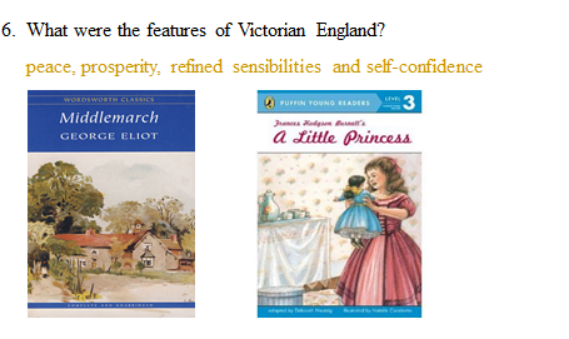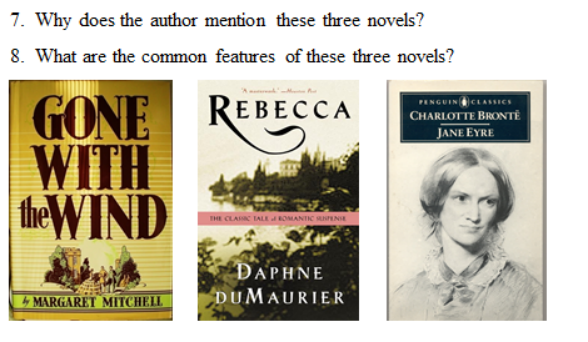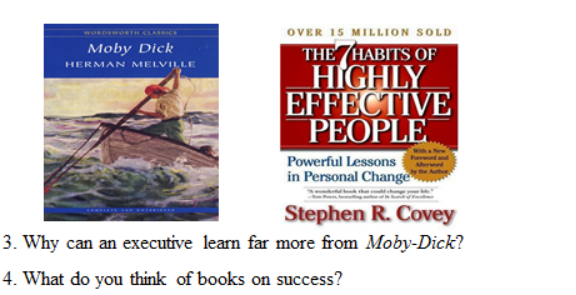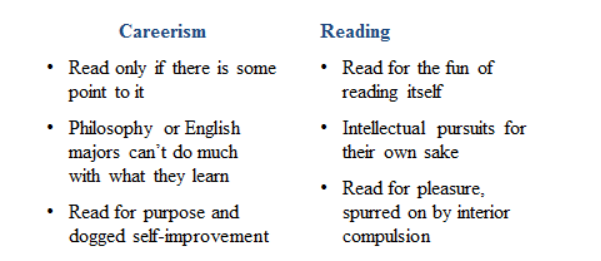Text Analysis: How Reading Changed My Life
 知识点一
知识点一
I. Warming up
Questions:
1.Has your life ever been significantly changed by any particular book?
2.What does reading mean to you?
3. How has the Internet changed people’s way of reading?
4. How do you account for such changes?
Please define the following words in their respective context.
…a small but satisfying spread of center-hall colonials… (para.1)
…all those great houses, with their high ceilings and high drama… (para.2)
America is also a nation that prizes sociability and community… (para.11)
…a kind of careerism in the United States that sanctioned reading… (para.12)
II. Background
Author: Anna Quindlen
Life:
Anna Quindlen the Journalist
The New York Times columnist until 1994
Pulitzer Prize for Commentary in 1992
Newsweek columnist 1999-2009
Anna Quindlen the Novelist
Full-time novelist since 1995
Author of five best-selling novels, three of which made into movies
Her work: Black and blue
A critic of the fast-paced and increasingly materialistic nature of modern American life
Some quotes:
If your success is not on your own terms, if it looks good to the world but does not feel good in your heart, it is not success at all.
You cannot be really first-rate at your work if your work is all you are.
III. Text analysis
(I)Theme
Questions for thinking:
What does reading mean to the author?
What kind of attitudes toward reading bother the author?
What kind of attitude does the author advocate?
(II)Structure

(III)Detailed analysis
Part I: Discussion
1.Where did the author spend her childhood?
2.Why did the author always feel that she ought to be somewhere else?
3.Why was it “a stiff and awkward lunch”? What did this show about the author?
4.How should the author have benefited from reading the six novels in Paragraph 2?
5.What did reading mean to the author when she was young?


9. Why did the author prefer reading to playing?
•Traveled across the physical world;
•Traveled into my own spiritual world: identity, aspiration, morality
→Books are my perfect island!
10. Why does the author read?
•Trips to other worlds;
•Journey into my own world;
•Perfect island (alone to not alone);
•Home, sustenance, great invincible companion
•Simply because she loves reading!
Why do you read?
Do you ever read simply because you love reading?
Part II: Discussion
1. What bias do people have against those who read much?
Lazy, Aimless dreamer, Loner, Arrogant
2. What is the something in the American character that is hostile to the act of aimless reading?
Reading is nothing more than a tool for advancement
Sociability and community
Go-out-and-get-going ethos
Admiration of men of action
Pragmatic tradition in America character →Pragmatism
Key tenets of pragmatism
Primacy of practice
Concrete thinking rather than conceptualization
Naturalism
Scientific methods
Skepticism
Prominent figures
Charles Sanders Peirce, William James and John Dewey

5.What are literary professionals’ opinions of reading?
Read to address problems
Good and worthy reading vs. bad and trivial reading
What is the author’s attitude? → Careerism vs. Reading

6.What are the traits of the real clan of the book?
Read not to judge the reading of others but to take the measure of ourselves
Love reading for reading’s own sake
Part III: Discussion
1.What is the “lively subculture of characters”?
2.What does the author mean by quoting “Until I feared I would lose it, I never loved to read. One does not love breathing.”?
3.What is the author’s attitude toward literary criticism?
4.The truth of reading is to be found in its people rather than its pundits and professionals.
IV. Reinforcement:
1.Summary
The orthodox “history” of reading
Exclusively for the literati and the intellectually worthy
Gutenberg’s invention of the printing press: reading as a source of information for the many
Conclusion of critics and scholars: literature plummeting into intellectual bargain basement
Movies, television
…What about today?
2.Discussion
(1)If you have a choice, would you prefer to read a book or read on screen?
(2)What do you think of the trend of micro-reading today?
(3)What impacts do you think technological development has on reading?
(4)How should we adjust to these changes?
